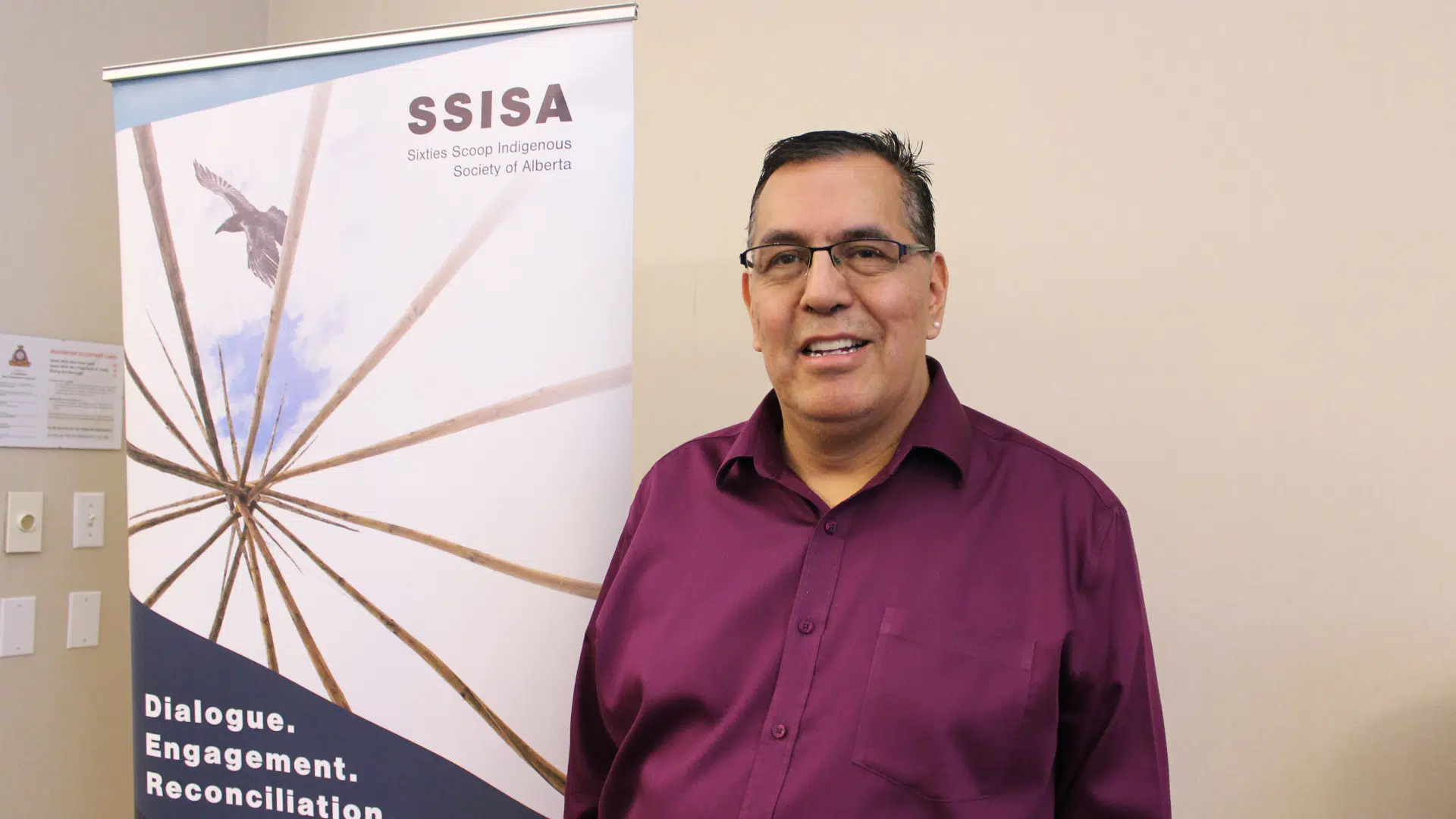
Sixties Scoop survivor says apology would be first step to healing
LETHBRIDGE – The experiences may have been different, but survivors of the “Sixties Scoop” have many things in common, the president of the Sixties Scoop Indigenous Society of Alberta (SSISA) said Thursday.
Adam North Peigan was born on the Piikani Nation in 1964. He was removed from his home as an infant and placed in foster homes and children’s shelters in Lethbridge and elsewhere in southern Alberta. North Peigan spoke at an information session at the Holiday Inn in Lethbridge, to present information on a proposed settlement with the federal government and efforts towards an official apology.
“I think going from home to home, that’s not normal for a child to experience that,” North Peigan said in an interview. “I suffered from a lot of abandonment issues, and a lot of loss of identity, loss of culture, loss of language.
“Even today I don’t speak my own language fluently, the Blackfoot language, and that to me is a great sense of loss, and trying to bring that back to who I am as an Indigenous person, it’s been a struggle my whole life. But I’ve done the best that I can to be where I’m at today.”


